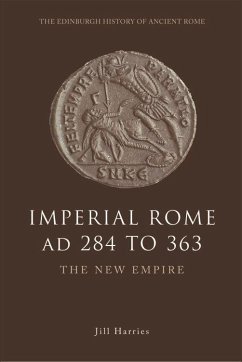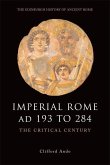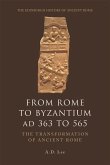AUTHOR APPROVED This elegant and exciting book offers a fresh approach to understanding 'early' late Antiquity. The breadth of vision is impressive. Jill Harries' triumph is to place Constantine and his promotion of Christianity in the context of a fully-rounded history of the Roman Empire from Diocletian to Julian. Christopher Kelly, University of Cambridge The Edinburgh History of Ancient Rome is a chronological history of Rome and the Roman world in eight volumes. From the city's first settlement to the collapse of the western empire and the emergence of Byzantium some 1,500 years later, each volume encapsulates the ever-changing identity of Rome, providing overall unity to its dramatic history. Series Editor: J. S. Richardson A distinct perspective on the dawn of Late Antiquity Diocletian (284-305) and his principal successor, Constantine (306-337), would rule the Roman world for over half a century and Constantine's sons would build on their legacy. Administrative reform encouraged the rise of a bureaucratic culture, provincial government was reshaped and became more hierarchical and the court became more structured. The period was also one of momentous religious change. With Constantine's adoption of Christianity as the favoured recipient of imperial patronage, the religious landscape would, over time, be radically reshaped. Jill Harries combines analysis of administrative reform and religious change with accounts of war, women and imperial cities to offer new insights on Late Rome and her empire. Key features * Focuses on the Emperor Constantine as a major figure and offers a context to his achievement * Addresses the role of imperial women, often ignored for this period * Studies the control of empires and how rulers fashion their claims to legitimacy Jill Harries is Professor of Ancient History at the University of St Andrews.
Hinweis: Dieser Artikel kann nur an eine deutsche Lieferadresse ausgeliefert werden.
Hinweis: Dieser Artikel kann nur an eine deutsche Lieferadresse ausgeliefert werden.








